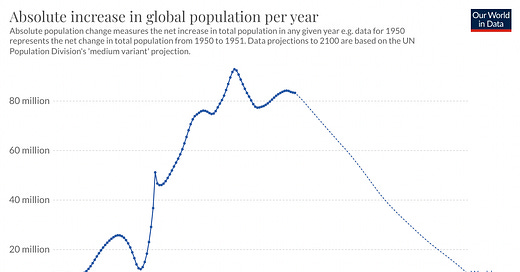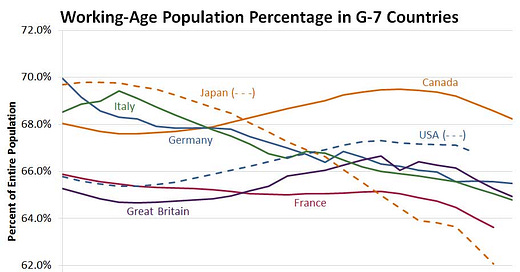
Immigration | Learning by Proxy
The Developed economies are grievously dependant on immigration. Though the rich may not admit it, it is how they manage to stay rich.
A bus driver in Sweden is paid on an average of 14500 Swedish Krona; that translates to about USD 1600 a month. A bus driver in India is paid about Rs 15500 a month which translated to about USD 210. The Swedish bus driver would probably jump out of his bus and run in terror if he is asked to drive on Indian roads. He is probably less skilled than the Indian driver who needs to be able to navigate some of the worst traffic, not to mention, children, cows, dogs and most importantly the Indian roads.
Even so, the Swede is paid almost 8 times as much! Why?
Immigration restriction.
Immigration has been at the heart of almost all of the right-wing movements across the western world.
Until about 300 years ago, most countries were not very well defined. Borders and rule were quite malleable and most often it was determined by he who had the greater might. Most places were forts with an agglomeration of buildings around them, whoever occupied the fort ruled the land. Countries changed hands regularly. It is only after the first world war that the contours of stable borders and identities started to emerge even in Europe. The hardening of those borders resulted in the second world war! Then they just decided to let people move about how they pleased and called it the European Union.
For a large part of the 20th century, the population was exploding across the globe. The population of the planet went from a little over 1.6 Billion people in 1900 to close to 8 Billion today.
Source: Our World in Data
There were always more people getting added to the economy, so the economy continued to grow as consumption grew. At the same time, since consumption was growing, more jobs got created and people were needed to fill those jobs. The population of some countries grew faster than others and this ultimately determined the standard of living. In the countries where labour was in short supply, the price of labour was higher - such as in Sweden and vice-versa.
Over the years, as the standard of living increased, the cost of child-rearing also increased. If you take a 3% increase in cost year over year across 50 years since the second world war, what used to cost 100 dollars in 1940, cost USD 438 by 1990.
Salaries have not kept pace with costs and this has resulted in a population implosion in those countries. There are not too many young people available to take up work!
Immigration and Globalisation are two sides of the same coin. The first push back on immigration started in the 1980s and by the Clinton years in the 1990s was already a huge issue in America. For large companies, technology came to their rescue and made outsourcing/offshoring possible. This moved jobs outside of the western economies without the problem of having to deal with immigration.
Outsourcing and increased penetration of both air and shipping routes over the last 30 years moved both knowledge and manufacturing processes out of the western world. China, Vietnam, Bangladesh, Taiwan and others absorbed a lot of the manufacturing from across the globe. While a lot of the knowledge processes were shifted to India and Eastern European countries like Poland, Romania, Czech, Bulgaria, etc.
Even so, there is always work in industries such as hospitality that cannot be outsourced. Many of these jobs were performed by immigrants. Those same immigrants would cover exorbitant fees to ensure that their child got educated and did not end up in the kind of jobs that they did. 2020 disrupted life and many of those who were unable to find work or cover for themselves left the western countries. They went back home.
As the global economy heats up and tries to put the pandemic aside, a battle for the young and able has begun. With fast-track visas and promises of permanent residency, many of the wealthy nations driving the recovery are sending a message to skilled immigrants all over the world: Help wanted. Now.
In Germany, where officials recently warned that the country needs 400,000 new immigrants a year to fill jobs in fields ranging from academia to air-conditioning, a new Immigration Act offers accelerated work visas and six months to visit and find a job.
Canada plans to give residency to 1.2 million new immigrants by 2023. Israel recently finalized a deal to bring health care workers from Nepal. And in Australia, where mines, hospitals and pubs are all short-handed after nearly two years with a closed border, the government intends to roughly double the number of immigrants it allows into the country over the next year.
Source: New York Times
They WANT immigrants suddenly!
The poor reproduction rate in western countries has been laid bare. They just don't have enough young people. Further, the pandemic forced many of the old people to retire and they may never join the labour force again. This is forcing these countries to re-assess how they evaluate immigrants.
In advanced economies, the immigration measures being deployed include lowering barriers to entry for qualified immigrants, digitizing visas to reduce paperwork, increasing salary requirements to reduce exploitation and wage suppression, and promising a route to permanent status for workers most in demand.
Portugal’s digital nomads can stay as long as they want. Canada, which experienced its fifth consecutive year of declining births in 2020, has eased language requirements for residency and opened up 20,000 slots for health workers who want to become full residents. New Zealand recently announced that it would grant permanent visas, in a one-time offer, to as many as 165,000 temporary visa holders.
One of the sharpest shifts may be in Japan, where a demographic time bomb has left diapers for adults outselling diapers for babies. After offering pathways to residency for aged-care, agriculture and construction workers two years ago, a Japanese official said last week that the government was also looking to let other workers on five-year visas stay indefinitely and bring their families.
Source: New York Times
The issues are severe when it comes to industries like hospitality and healthcare. Many healthcare professionals have quit out of exhaustion that has been wrought by the pandemic. Working 20 hour days, 7 days a week and not being able to meet their families for fear of infecting them has taken a toll on them whether they are doctors or nurses.
The effects of Brexit are getting more and more obvious to the British.
Net immigration to the United KJingdom fell by almost 90 percent last year to its lowest level since 1993 due to the impact of COVID-19 and Brexit, official figures showed on Thursday.
The Office for National Statistics released a first provisional estimate showing that 34,000 more people moved to the UK last year than emigrated, down from 271,000 in 2019.
“Immigration was much lower in 2020 than in previous years, likely caused by a combination of the coronavirus pandemic and Brexit,” the ONS said.
Source: AlJazeera
In the western world, the 'Immigrant Crisis' has gone from, too many immigrants trying to enter the country to not enough of them coming in!
While I think, in a matter of another couple of years this situation might be forgotten as things get back to normal. COVID has certainly taken the veil off the lie that immigrants are dependant on rich nations. The truth is that rich nations are very heavily dependant on immigrants to keep their economies running and also to keep themselves rich. Immigrants, irrespective of the kind of work they do are paid far less than citizens. In the US, a family headed by an immigrant would end up earning 33% less than one headed by a US Citizen according to Forbes.
I doubt their need will make this inequity disappear. But if the pandemic situation persists much longer, it may leave these countries starved of immigrants for years to come. Who knows, in the meantime, those very same people might bring about change in their own countries and leave the west behind?











I agree. During my tour while studying in Europe back 6 years ago, one of the lecturers used to tell, Germany and France have a more retired population than working, so govt is facing enormous pressure to take care of their healthcare and pension, so they opened up immigration for studies. On the other side, people there aren't completely open to accepting immigrants.
-Shan
Aren't we a nation having the most of young and equal number of old population? Would our young cash in on this situation ? I wonder.